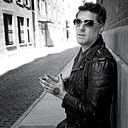Member-only story
The Crisis of Professional Skepticism
Leading skeptics fail the test of “extraordinary evidence”
’Tis safer to be that which we destroy,
Than by destruction dwell in doubtful joy.
— Lady Macbeth, Act 3, Scene 2
A brilliant 20th century sociologist Marcello Truzzi (1935–2003) called himself a “constructive skeptic” of paranormal phenomena.
In 1975 and again in 1978, Truzzi, a man of even temperament, refined ethics, and dedicated but authentically questioning skepticism, stated a principle — not wholly original to him — that was later popularized by astronomer Carl Sagan. Truzzi’s maxim was: “An extraordinary claim requires extraordinary proof.”[1] The widely quoted precept, redubbed the “Sagan standard,” was repeated by the televised astronomer in 1980 as: “Extraordinary claims require extraordinary evidence.”
Truzzi resigned from the professional skeptics’ organization he cofounded, Committee for the Scientific Investigation of Claims of the Paranormal (CSICOP), now Committee for Skeptical Inquiry (CSI), about a year after its 1976 launch. Truzzi protested the group’s dominance by “pseudo-skeptics” more interested in injurious behavior toward claimants of the paranormal versus actual skeptical inquiry.[2]
